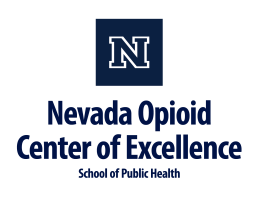Substance use during pregnancy is a growing concern in Nevada and across the nation, with serious implications for both maternal and infant health. Pregnant and postpartum individuals affected by opioid use disorder (OUD) often face stigma, limited access to care, and systemic barriers that can leave them feeling isolated in some of the most vulnerable moments of their lives.
That’s where doulas come in.
Trained birth workers are in a unique position to offer compassionate, non-clinical support that meets people where they are—before, during, and after birth. When doulas are equipped with the tools to understand substance use, trauma, and recovery, they become powerful advocates for dignity, healing, and better health outcomes.
In this post, we explore the rising impact of opioid use in pregnancy, the critical role doulas can play, and an upcoming training series designed to empower perinatal professionals with the knowledge and skills to support families navigating substance use.
The Growing Impact of OUD in Pregnancy
Recent data indicates a substantial rise in opioid use disorder (OUD) among pregnant populations. According to the Centers for Disease Control and Prevention (CDC), the number of babies born with neonatal abstinence syndrome (NAS)—a withdrawal condition in newborns exposed to opioids in utero—increased by 82% from 2010 to 2017. This equates to approximately 6 cases per 1,000 hospital births in the United States (Hirai et al., 2021).
In Nevada, the situation is equally concerning. Substance use and overdose remain among the leading causes of maternal mortality in the state (Nevada Maternal Mortality Review Committee, 2022). These outcomes reflect broader trends in opioid use among women of reproductive age. In 2023, the Nevada Department of Health and Human Services found that over 30% of opioid prescriptions filled through Medicaid in the state were written for women of reproductive age (Nevada Department of Health and Human Services, 2023). These figures highlight the urgent need for targeted, trauma-informed care strategies during pregnancy, birth, and postpartum.
The Role of Doulas in Supporting Clients with Substance Use Disorders Including OUD
Doulas provide continuous emotional, physical, and informational support to individuals before, during, and after childbirth. Their presence has been shown to improve birth outcomes, reduce medical interventions, and increase satisfaction with the birthing experience (Bohren et al., 2017). For clients affected by substance use, doulas can play an especially critical role by offering compassionate, nonjudgmental care that supports dignity, trust, and stability during a vulnerable time.
Understanding the effects of opioid use during pregnancy, withdrawal symptoms, medication for opioid use disorder (MOUD), and family-centered strategies like trauma-informed care allows doulas to more effectively advocate for their clients and collaborate with clinical care teams. Equipped with this knowledge, doulas can help bridge gaps in communication, reduce stigma, and ensure that clients navigating substance use and recovery feel supported and empowered throughout their perinatal journey.
Upcoming Training Opportunity: Doula Training Series
To address this need, the Nevada Opioid Center of Excellence is offering a free, four-part virtual training series: Doula Training Series: Supporting Clients with Substance Use Disorders.
Led by nationally recognized educator and peer doula Kasey Edwards Snider, the series is open to doulas, midwives, lactation consultants, nurses, and other professionals working with pregnant and postpartum individuals.
Training Details:
- Dates: Wednesdays, June 4–25, 2025
- Time: 3:30–5:00 p.m. PT
- Location: Zoom Webinar
- Continuing Education: 6 CEUs approved by the Nevada Certification Board for Doulas
- Registration: Register here
Session Topics:
- Session 1: June 4 – Understanding SUDs in Pregnancy
- Gain foundational knowledge about SUDs, trauma-informed care, and how stigma and bias impact maternal health.
- Session 2: June 11 – Introduction to SBIRT
- Learn how to screen for substance use, initiate supportive conversations, and connect clients to treatment using the SBIRT model.
- Session 3: June 18 – Supporting Women in Recovery
- Explore recovery journeys, non-enabling support strategies, child welfare considerations, and how to encourage coping and self-care.
- Session 4: June 25 – Working with Babies Exposed to Substances in Utero
- Understand the needs of substance-exposed newborns, and learn ways to promote bonding, responsive care, and collaboration with hospital teams.
This series emphasizes empathy, lived experience, and practical, culturally responsive support. It aims to equip doulas and other perinatal professionals with the knowledge and tools necessary to support clients navigating substance use disorders during pregnancy, labor, and postpartum.
About the Presenter
Kasey Edwards Snider, CRM2, PSS, CADC-I is a nationally recognized perinatal harm reduction educator, program developer, and specialized peer doula with over 13 years of experience supporting pregnant and parenting people impacted by substance use. She is a Certified Peer Support Specialist, Certified Alcohol and Drug Counselor, Certified Recovery Mentor II, and Birth Doula.
Kasey has supported systems-level transformation across Oregon by developing trauma-informed curricula, mentoring peer and medical providers, and co-creating the foundational model for Project Nurture, a nationally recognized program that integrates maternity care and substance use treatment. She currently serves as a Content Consultant for Comagine Health, contributes to the Academy of Perinatal Harm Reduction, and works as the In-Reach Outreach Coordinator at the Oregon State Hospital—where she supports long-term recovery planning for patients navigating mental health and justice systems, including those who are perinatal.
Her latest project, the Doula Training Series: Supporting Clients with Substance Use Disorders, offers a virtual, CEU-eligible curriculum designed to equip doulas with practical tools, trauma-informed frameworks, and culturally responsive strategies to support people through pregnancy, recovery, and postpartum care. The series centers lived experience, compassion, and cross-system collaboration, with sessions on SBIRT, recovery journeys, newborn care, and more.
Kasey is deeply passionate about expanding access to doula care and reimagining systems that often separate families. Her work is grounded in the belief that every mother deserves the chance to parent—and that our systems must be reshaped to make that possible. Through advocacy, training, and program development, she continues to challenge societal barriers and uplift community-led solutions that protect the bond between mothers and their children.
References
Bohren, M. A., Hofmeyr, G. J., Sakala, C., Fukuzawa, R. K., & Cuthbert, A. (2017). Continuous support for women during childbirth. Cochrane Database of Systematic Reviews, (7), CD003766. https://doi.org/10.1002/14651858.CD003766.pub6
Hirai, A. H., Ko, J. Y., Owens, P. L., Stocks, C., & Patrick, S. W. (2021). Neonatal abstinence syndrome and maternal opioid-related diagnoses in the United States, 2010–2017. JAMA, 325(2), 146–155. https://doi.org/10.1001/jama.2020.24991
Nevada Department of Health and Human Services. (2023). Medicaid opioid prescription data summary. https://dhhs.nv.gov
Nevada Maternal Mortality Review Committee. (2022). Annual report: Pregnancy-associated deaths in Nevada. Nevada Department of Health and Human Services. https://dpbh.nv.gov




